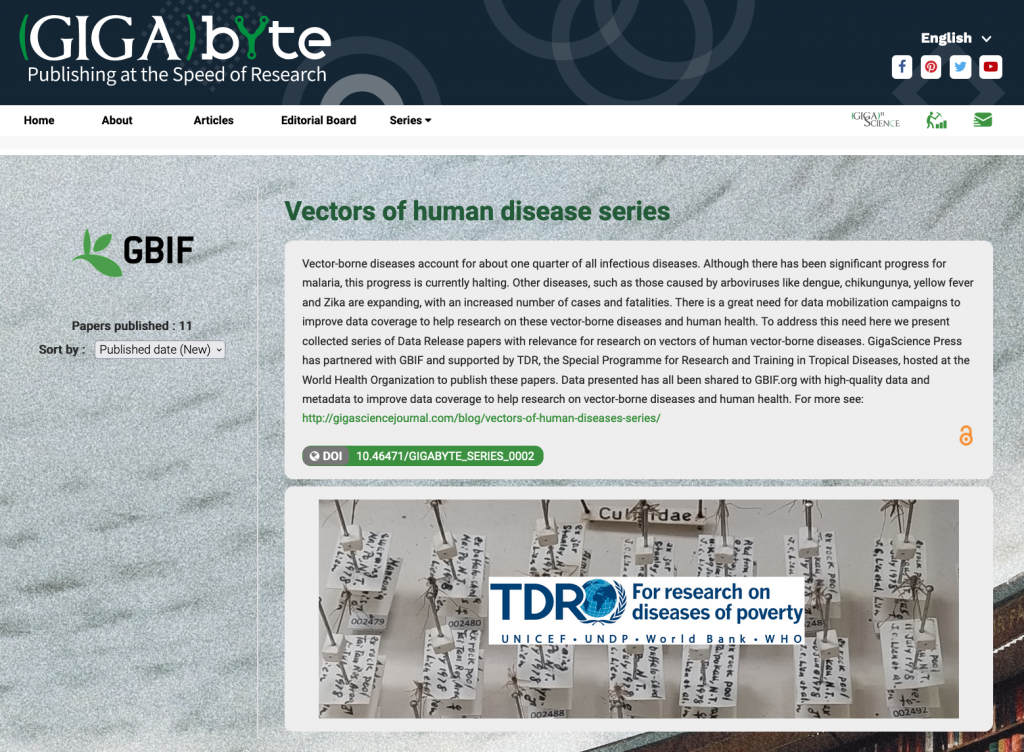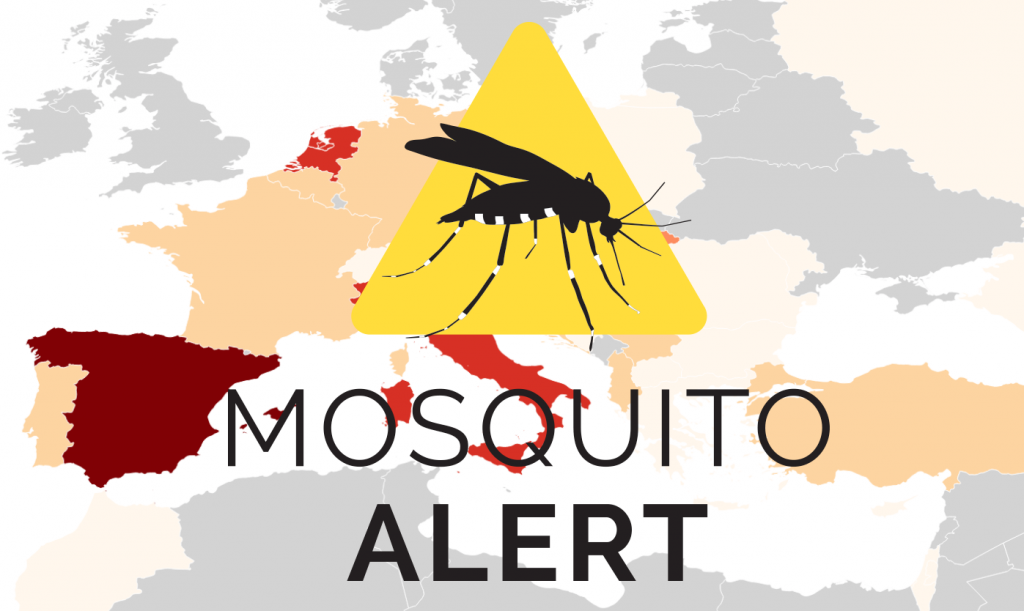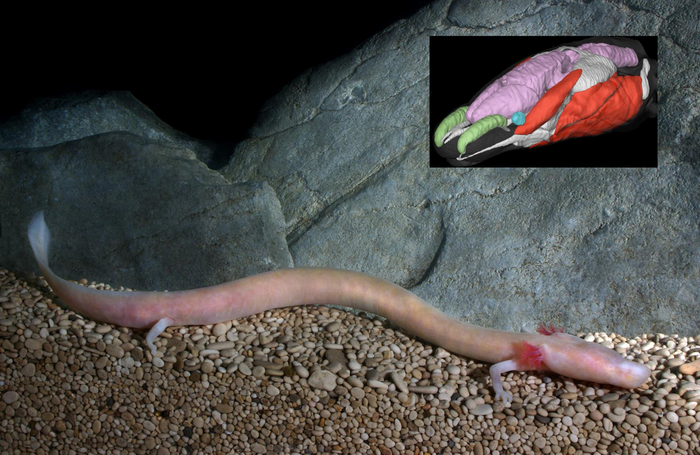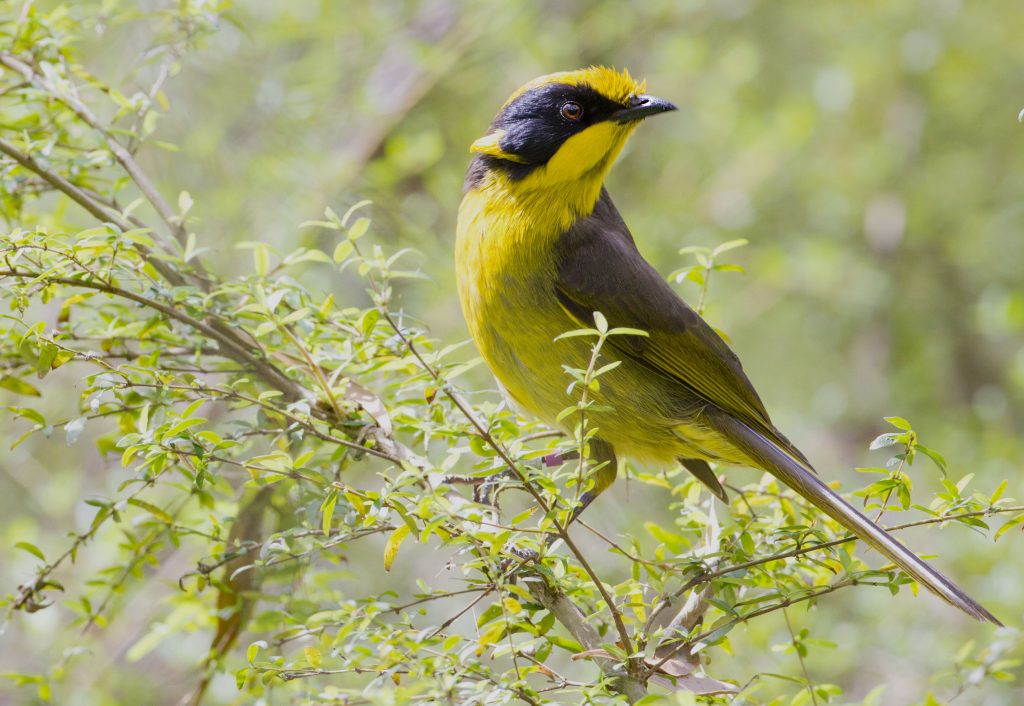
Our WHO-sponsored series of articles describing biodiversity data relevant to vector-borne diseases has now been published in GigaByte . This special issue presents a wide variety of data relating to the presence, spread, and diversity of organisms that are transmitting viruses, bacteria and parasites to humans.






